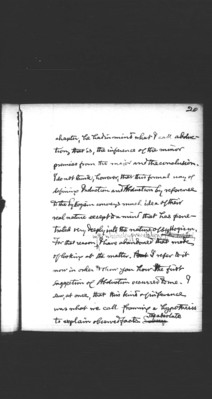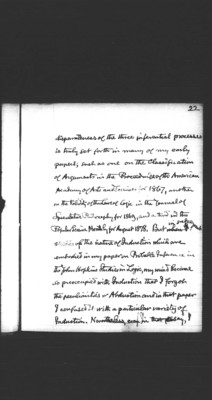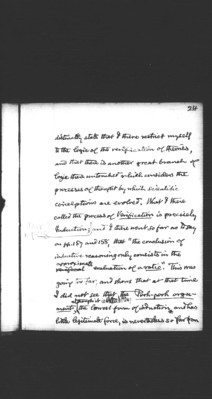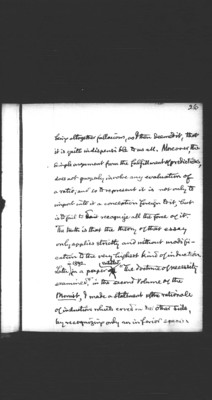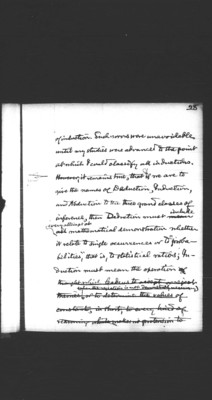Pages
16
20
chapter, he had in mind what I call abduction, that is, the inference of the minor premiss from the major and the conclusion. I do not think, however, that this formal way of defining Induction and Abduction by reference to the Syllogism conveys much idea of their real nature except to a mind that has penetrated very deeply into the nature of syllogism. For that reason, in the introductory presentation, I have abandoned that mode of looking at the matter. I refer to it now in order to show you how the first suggestion of Abduction occurred to me. I saw at once that this kind of inference was what we call framing a hypothesis to explain observed facts. The absolute
17
22
disparateness of the three inferential processes is truly set forth in many of my early papers; such as one on the Classification of Arguments in the Proceedings of the American Academy of Arts and Sciences for 1867, another on the Validity of the Laws of Logic in the Journal of Speculative Philosophy for 1869, and a third in the Popular Science Monthly for August 1878. But in subsequent studies of the nature of Induction which are embodied in my paper on Probable Inference in the Johns Hopkins Studies in Logic, my mind became so preoccupied with Induction that I forgot the peculiarities of Abduction and in that paper I confused it with a particular variety of Induction. Nevertheless, even In that essay, I
18
24
distinctly state that I there restrict myself to the logic of the verification of theories, and that there is another great branch of logic there untouched which considers the processes of thought by which scientific conceptions are evolved. What I there called the process of Verification is precisely Induction; and I there went so far as to say on pp. 157 and 158, that “the conclusion of inductive reasoning only consists in the approximate evaluation of a ratio.” This was going too far, and shows that at that time I did not see that the Pooh-pooh argument, although it is the lowest form of induction and has little legitimate force, is nevertheless so far from
19
26
being altogether fallacious, as I then deemed it, that it is quite indispensible to us all. Moreover, the simple argument from the fulfillment of predictions, does not properly involve any evaluation of a ratio; and so to represent it is not only to import into it a conception foreign to it, but is to fail to recognize all the force of it. The truth is that the theory of that essay only applies strictly and without modification to the very highest kind of induction. Later, in 1892, in a paper entitled “The doctrine of necessity examined,” in the second volume of the Monist, I made a statement of the rationale of induction which erred on the other side, by recognizing only an inferior species
20
28
of induction. Such errors were unavoidable, until my studies were advanced to the point at which I could classify all inductions. However, it remains true, that if we are to give the names of Deduction, Induction, and Abduction to the three grand classes of inference, then Deduction must include every attempt at mathematical demonstration whether it relate to single occurrences or to “probabilities,” that is, to statistical ratios; Induction must mean the operation
